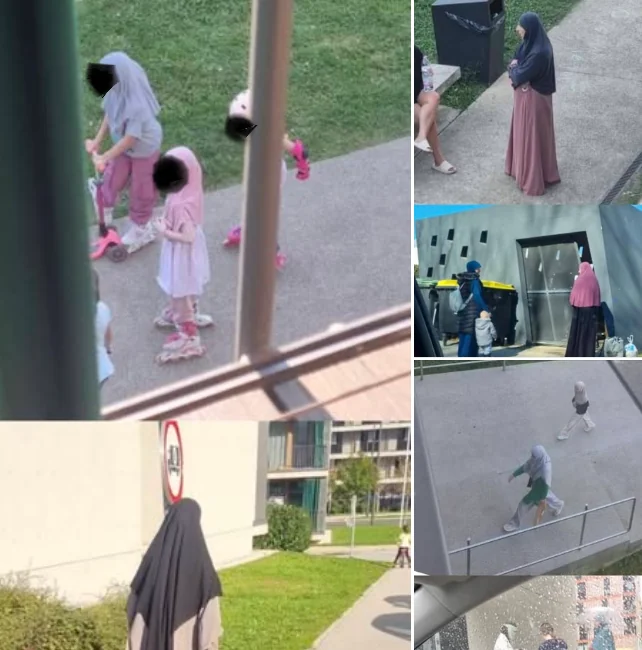“New residents of the Brdo non-profit public housing intended for young people. The Vienna model has finally come to Ljubljana,” Tomaž Štih, a political analyst and former adviser to Finance Minister Janez Šuštaršič, pointed out on social media, referring to the attached pictures of Muslim women and their children walking and chatting in front of the building.
When the late journalist Boris Cipot decided to research the Ljubljana Public Housing Fund a few years ago, he already found in 2019 that there was only a sample of Slovenian names on the nine pages of beneficiaries. We also reported that the trend on the lists itself had not changed even five years later.
As the recently published images from Brdo show, among the young families that have found a home in state public housing are also Muslim families, which are characterised by the fact that they usually have a larger number of children. This, of course, in addition to their financial status, also awards them a higher number of points. There are, of course, other criteria for the decision, too.
Anonymised housing recipients
“Interestingly, the names of those who are selected for non-profit housing are now being anonymised when they are announced, so that we no longer get an insight into who the housing is actually being built for. Only the points are published,” pointed out Matej Lahovnik, an economist and former Minister of the Economy, on the social network X. As for the concealment of data, even though the facilities are built with state money, Tomaž Štih pointed out that everyone understands that this concealment is deliberate.
The publication of the aforementioned images of the new residents of public housing by Štih sparked a wave of criticism on social media, with some online users saying, “Non-profit housing should be for the citizens of Slovenia. You can’t get it before you have citizenship”; “In Vienna, Austrians and also Slovenians get non-profit housing. In Slovenia, it is everybody except Slovenians.”; “The result of the Soros photo-ops. Traitors.”; “For immigrants, elite neighbourhoods (God bless them), for Slovenian families, 30 years of loans and pills for burnout…”.
Štih also pointed out that under this government, a clandestine decision was taken to hide the names of the recipients of non-profit housing and to publish only the scores. “People…, you elected this, but next year, be a bit more sensible,” Štih added. Many people think that in order to ensure transparency in the use of public money, names should be published in their entirety.

Meanwhile, Štih also believes that we do not need non-profit housing at all. He stressed that we need zoning and building legislation that will allow regular workers to build a house with their wages. “It is a historical anomaly that young people are calling on the state to give them housing. This has never happened before, and we should never have allowed the laws to be tightened up like this,” pointed out Štih, who some time ago also highlighted that those who see rented housing as the solution to the problem cannot even explain what will happen to tenants when they get older. “At that time, pensions will be much lower than they are today. How will they pay rent if they can barely pay their bills today?” he was clear.
As many families – and especially young people – find it difficult to afford their own home, due to high property prices and a cumbersome bureaucracy, left-wing politics is using the construction of non-profit housing as an instrument to expand and maintain its political pool. At the beginning of its mandate, the current government thus promised as many as 30,000 new housing units that were supposed to be built. Two years ago, at Brdo pri Kranju, Labour Minister Mesec spoke of two thousand housing units instead, after which the Prime Minister corrected him and said that the right number is three thousand. The Prime Minister then later changed his statement and also mentioned the number two thousand. In any case, promises that were made are one thing, and, of course, the actual realisation is something else entirely.
A. H.


